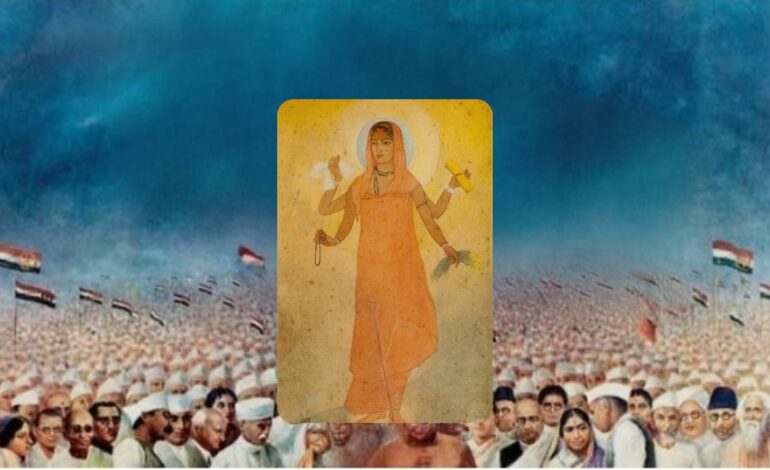
Journalist and grassroots activist Revati Laul draws from her involvement in and observation of diverse segments of the Uttar Pradesh society over the past few years and puts together this long form analysis of the social, cultural, political and ideological factors that triggered the tectonic electoral shift in the 2024 Lok Sabha polls in the country’s most populous State.
It’s possible, in this billion plus country of many languages, communities and religions to sum us up in one word. It’s the word that glued very unlikely people together to fight the British, the one word that since independence is the reason women across India survive their violent, alcoholic husbands and the reason a movie like Sholay is a hit every time it’s shown in a cinema.
We are a country of subversives.
Even when half of us conform and capitulate, we are in conversation with the half that does not. At various points in our lives as individuals and as a collective, each of us has conformed, capitulated, and then thrown it up in the air because that is who we innately are as a people. And it’s hard to measure, hard to quantify because by definition, it means that most of the time Indians will not tell you what they really think. You have to be very good at reading the subtext and at eking it out of them.

Bharat Mata is not described as feminine energy for nothing. If we are looking at stereotypes then the most used and abused is that of Mother India, Bharat Mata. The ubiquitous sacrificial woman made to personify the nation. But the Mata in play in this election, told us the story once again of who we really are. It came down to that this time, as it has been in India only once before in our independent history – when Prime Minister Indira Gandhi subjected us to emergency rule and was summarily voted out by the people in the election that followed in 1977.
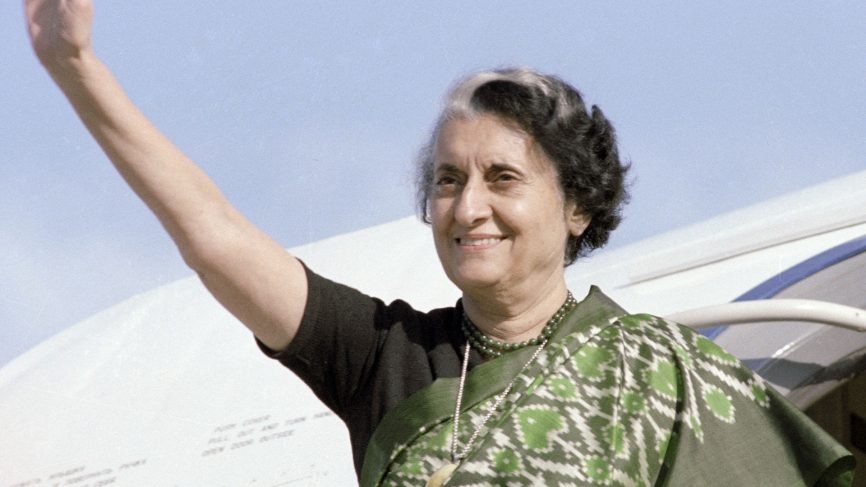
This time, it was palpable, in the one state that showed the BJP what it means to take the voter for granted. In Uttar Pradesh more than anywhere else, it felt like India was having an existential conversation with itself. Are we an autocrat-loving people, fed up with nothing ever getting done and wanting a charismatic leader to tell us he will do everything because he reigns supreme? Or are we too fiercely independent to kowtow incessantly before a demagogue? UP tells us we’re both sides in constant conversation, but when push comes to shove, both sides are counter-intuitive and constantly changing clothes and personas.
It’s hard to see this if as a journalist or writer, you live in a big-city bubble like Delhi or Mumbai or even Bangalore. If you’re English-speaking, upper-caste, upper-middle class. By definition, you are hermetically sealed from the fear that is a constant presence in the lives of a woman like Sapna (name changed), a Kashyap or OBC caste person I have worked with for over four years in the Lok Sabha constituency of Kairana.
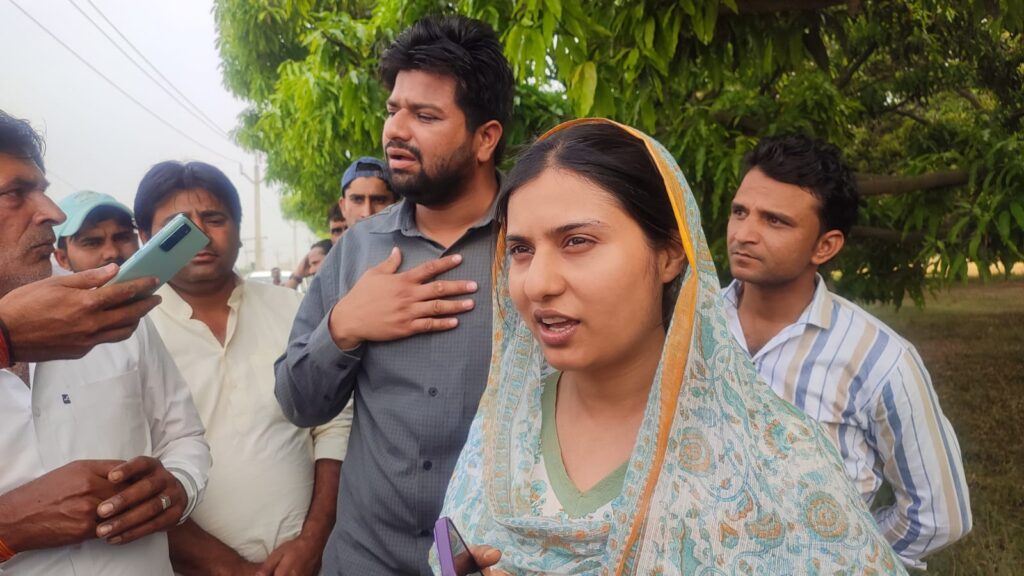
She always wears a ghunghat, (covering her head) lowers her gaze as soon as a male relative appears on her doorstep. But she also heads the micro-finance cluster groups in her village and when a meeting is held in her home, she politely asks her husband to leave, so that all the women members can talk in peace. Sapna personifies UP today. Outwardly compliant, inwardly, always in dissent, always watchful, fearful, and wilful.
In Sapna’s village, I noticed two young women who looked like they were a couple, one of them distinctly embracing a butch dress-code and manner. “Are they a couple?” I asked Sapna. “Yes, and the entire village is on their side, conspiring to have both women married to two brothers or at least in the same village, so they can continue to be together.” No pollster or journalist who doesn’t live and breathe this subversive air will ever get this. You also have to preferably be a woman. Because women living in UP know what it’s like to have to factor fear into their everyday life and find moments of freedom within it.
That ability to hide and get away with what you really want is also visible if you come from a space of social discrimination, like most of my Dalit colleagues in the NGO we run in Kairana, to help build a world of social justice. One colleague tells the story of going to school where the male teacher raped a fellow teacher and several students in front of the class. “He would make a girl sit across his lap and take out his penis. I’ve had to see my teacher’s penis in class.” It took my colleague years of not wanting to go to school to overcome his shame and embarrassment before he could tell his mother why he could not bear to go to that school any more. Over time, living with such horrors made my colleague inwardly combative and that became part of his DNA. You never want to be subject to this kind of terror and fear ever again.
So, this colleague started to act subversively in support of other children who were being terrorised in their classrooms. When a kid told him how his teacher had beaten him up, he decided to go to a nearby phone-booth and make a prank call to the school. In a small-boy voice, my colleague who was then a child, rang up the school in question and said – “I am telling you, your school has not taken action against the following teacher, so now there is a bomb placed in your school, your school will be blown up.” The fake bomb scare got my colleague into major trouble with the shop-keeper who was eavesdropping on this conversation. But it was this boy’s way of pushing back against oppression.
We think of Uttar Pradesh as the land where the BJP and its saffron brigade – the RSS-VHP-Bajrang Dal succeeded in pushing the idea of India as a Hindu-Rashtra – a Hindu nation, onto the political landscape. This is where the Ram temple was built by bringing down the Babri mosque in the city of Ayodhya in 1992. This is where the Muzaffarnagar-Shamli riots against Muslims polarised the electorate in 2013, allowing the BJP to reap rich dividends. The party won 71 out of 80 Lok Sabha seats in the election that followed in 2014, a jump of 24.8% in vote share and a whopping 61 seats more than the previous election of 2009.
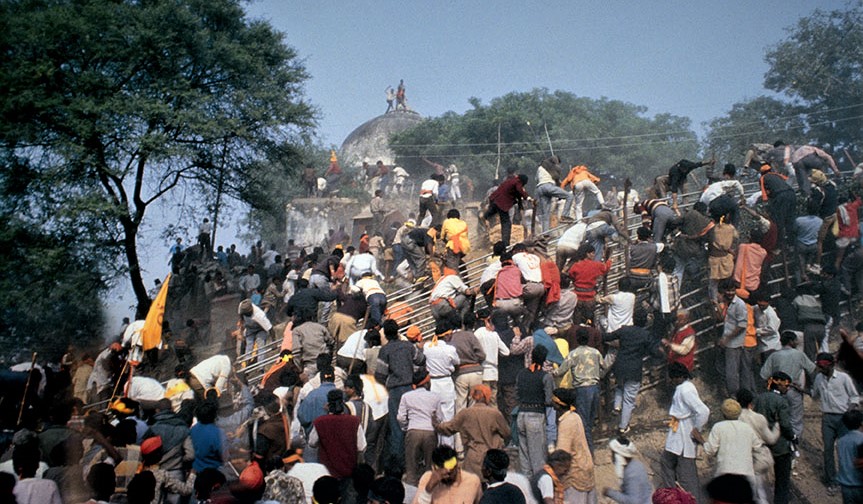
This was taken to mean that in UP there was a saffron surge. People, it was said, had surrendered their better judgement, high on a testosterone driven dream of subjugating Muslims, that are more present and therefore more threatening to Hindu majoritarians than elsewhere in the country. The percentage of Muslims in UP is 19.2% (using our much-outdated previous census of 2011 figures) which is 5% higher than the national average of 14.2%.
Living in UP, in a colony of mostly Valmiki Dalits and Muslim Dhobis has forced me to tear open the big-city Delhi bubble I was in and see this story properly. For the last two elections, in the polarised Lok Sabha of Kairana, it was possible to see why so many OBC castes (other backward classes) voted for the BJP. Kashyaps, Sainis, Gadariyas, Kumars work as landless labour for extremely oppressive and usurious landlords who come from two or three traditional landowning castes – Hindu Jats and Gujjars. Most votes in favour of the BJP have been to negate and overturn their supremacy. Some of that anger is directed at Muslim landowning castes – Muslim Gujjars and Sheikhs, for similar reasons. Any political party that has leaned for support on these big landowners has been in trouble in UP for this reason. Election after election has shown this to us, but people like me, from big cities, that see communal politics as a monolith, have been unable to read UP correctly. We don’t see that even this leaning on the BJP by OBCs was a subversive move away from the stranglehold of landlords.

For the last two elections, the Samajwadi Party-Congress combine has been seen as a party of landlords and entitled people – favouring Jat and Muslim landowners of considerable wealth and ignoring aspirational castes. Modi was the voice of these aspirational castes, in other words, calling out the subversive amongst these communities in distress. If it meant paying heed to a clarion call against Muslims, so be it. “Politics me yeh sab chalta hai, didi – in politics all of this is fair game,” many would say to me.
With this in mind, it was possible to make sense of what one witnessed in this election.
It started slowly and tentatively where I am, in Kairana, in western UP, which voted in phase one on April 19th. It then built into a tsunami of dissent by the time the Prime Minister’s constituency of Varanasi went to vote on June 1st.
“Didi, Iqra Hasan is winning, I’m telling you;” said a young man we work with, who is a BJP party worker and Bajrang Dal activist. “I’m a booth agent for the party but I’m telling you I’ve voted for the Samajwadi Party candidate Iqra Hasan and so has our entire village. So have various OBC castes, across the board,” this man said, calling each of us in the office in turn, the excitement uncontainable. He said he was still a Modi fan but did not like the high-handedness of the local BJP candidate. This was the first sign for an election observer like me, of things to come.

When I travelled across UP in 2019, I did not hear people speak like this. Even if they didn’t like the local candidate, the vote was for Modi. How and why did the local candidate suddenly start to matter? Because dissent against the local candidate wasn’t literally just that.
Nothing in UP can be taken at face value. Read together with everything else I have described above, what appeared to me was that this young man was telling me he was voting against the man he liked and admired – against Modi, but he needed to keep calling each of us as if we could somehow dissipate that nervous energy and help him justify his decision to himself. Why was he knocking his hero, was he in fact knocking his hero? The best way for him to articulate his dissent was by saying – I’m voting against the BJP but I know that overall, nationally, the BJP will still win. I only want to teach the local despot a lesson.
By the third phase of this election, the voices of dissent got bolder and more brazen. What was a tentative thought in the beginning, began to cascade across the state and across castes. A man who had been in the BJP from the time the party was founded, spoke more clearly of the scale of dissent. He was from the district of Dadri in western UP, made famous by the lynching of the Muslim man Mohammad Akhlaq in 2015. Hesaid – “I am not voting for the BJP and my RSS colleagues from here to Ghaziabad have all decided not to campaign for the party this time.”

I heard a similar story from another RSS man, this time a young RSS man who was also in the BJP’s student wing in the southern part of UP – in Jhansi. “I am telling you in no uncertain terms that we are not canvassing for the party this time.”
By the last phase, I was on ground, in eastern UP, with a group of friends and concerned citizens. We travelled across Varanasi and the districts of Ballia and Ghazipur. Castes normally seen as staunch BJP supporters were in revolt. Sainis, Vishwakarmas, Kushwahas – people who had turned to Modi as their saviour from dominant castes and landlords. Each had their particular reasons, but it added up to all of these castes feeling like they did not matter. That the man they looked up to somewhat starry-eyed was wearing a mask and making promises without delivering any.
They began to articulate their anger in concrete and coherent ways. There’s an 18% goods and services tax on education. We don’t have jobs. Inflation is killing us. Cooking gas is unaffordable. But underneath all of these tangible reasons was the larger, intangible feeling one had picked up by this time. The people of UP felt they had been had. If they had revolted against a landlord-leaning set of parties earlier, they could do it again.
On the ghats of Varanasi, by the river Ganga, people across castes even quantified their dissent. “Modi’s margin of victory will come down hugely, he won’t win by more than a lakh votes,” said a hawker, his words becoming prophetic as they cascaded over the river.
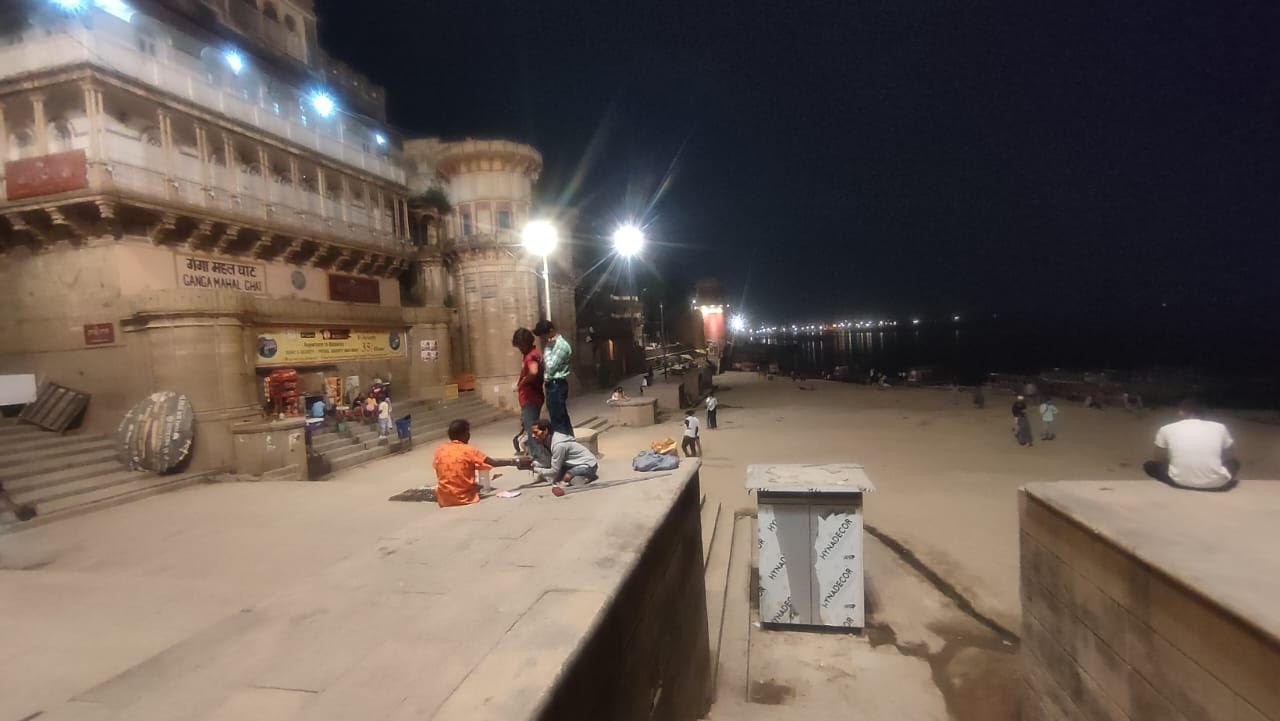
At the same time, a meeting called by intellectuals, students,and activists from Benares Hindu University, gave a health warning to those who might think there would be an easy run for the opposition. “Where were they when we were starving during COVID and having to walk thousands of kilometres home?”
“When Rahul Gandhi is making speech after speech saying what he will do for women and backward castes, why is he not saying a thing about whether he will do anything for Muslims?”
The watchful, counter-intuitive UP voter was telling us they were fed up of being taken for granted all around. Not just by the BJP, but also by the opposition.
The results, baffling to pollsters and the mainstream media, showed us exactly what kind of subversive this was. Even allies of the BJP that were caste specific, like the Nishads and Rajbhars, threw the incumbents out.
We, who live in UP and travelled across a few districts in this election saw this coming, not because we had any particular felicity for politics or numbers. We saw it because we were not recording this officially as pollsters, out with surveys and sheets. Nor were we recording this for cameras. We knew by now, that to read UP and in fact India properly, you need to decode what people are saying and understand deeply and innately what happens when people are riddled with fear.
“Where were you when we were scared and terrified of taking on this administration,” said many anguished voices, at meetings we attended, as they addressed members of the opposition.
For a while, the people in UP put up with the non-delivery of promises, waiting to see if something would turn. What they said in this election in district after district is – “Taanashah ko sabak sikhayenge – we will teach the dictator a lesson.”
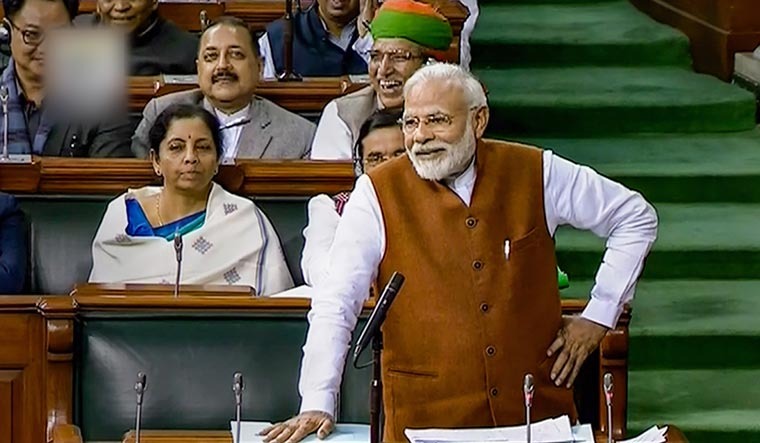
Those who felt they were hurt the most by Modi and his party’s clarion call to “Ab Ki baar 400 paar – this time, take us to 400,” were the Dalits, especially the Chamars and the Jatavs. If this man comes to power again, he will use a mandate of over 400 seats to change the constitution and we will lose our protection that the constitution affords us, written by our Dalit icon Babasaheb Ambedkar. Many people from the Chamar and Jatav castes had private meetings where they pledged their allegiance to the constitution ahead of the polling day in their area.
Muslims from castes that were oppressed by Muslim landlords, such as Fakirs, Dhobis, Saifis and Ansaris that had voted in part for the BJP in 2019, had consolidated against the party this time and were also articulating their fear in the same way. R, who works with us as our office manager and cook, changed the way she looked at this election from phase one to phase seven. In phase one all she could say is – Modi will win. She had no idea that Prime Minister Modi had said anything to upset Muslims. By the time UP was in its fifth phase of voting, she began saying what she now heard being said all around her. “If Modi comes to power again, Muslims like me are in real danger. I might not live.”
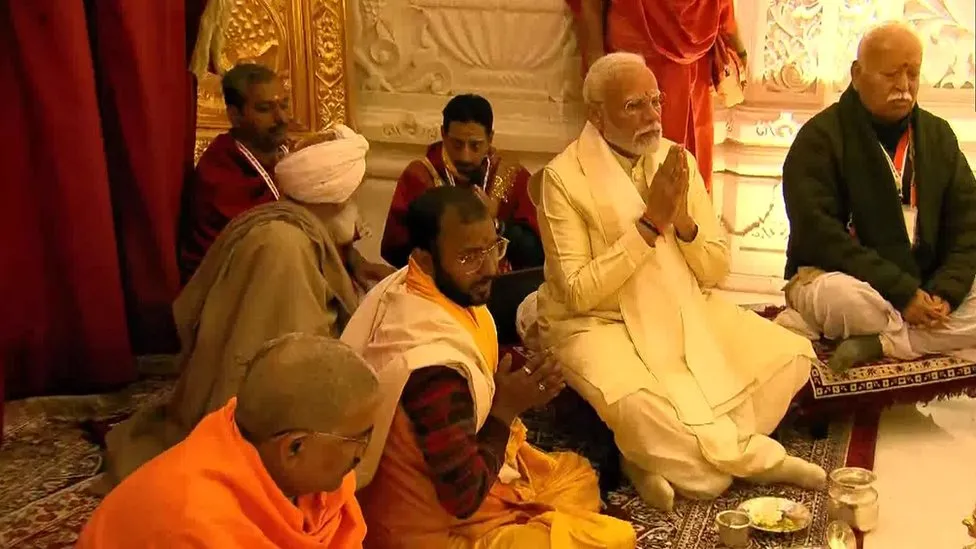
A man who had been our gardener, from the Ansari caste also explained why he had switched from being a Modi supporter to a dissenter between the last assembly election in 2022 to the present. “It’s because of Iqra Hasan’s personality in Kairana,” he said. There was that too, in the area we live and work in. Iqra Hasan understood her electorate well. She came from a much- reviled Gujjar landlord caste. Her family had been in power for two generations. Her father Munawwar Hasan was an MP four times, her mother had also been MP, her brother is an MLA from the region.
The family wealth and property made her a prime candidate for cynosure. But landed wealth isn’t the only deal breaker when you’re dealing with a very astute electorate. Iqra came back from earning a law degree at the School of Oriental and African Studies in London and found that her brother was arrested and jailed, just ahead of the assembly elections in UP in 2022. Her brother Nahid earned the reputation of taking the voter for granted and doing exactly what voters did not like. He was seen as an all-around goonda, wedded to a life of politics and petty crime. Iqra on the other hand came across to the people as a diligent worker, as someone who sat and listened to what people had to say. In short, an empath.
That she was a Muslim woman, only 27 years old and in a constituency still smarting from the communal riots of Shamli-Muzaffarnagar (the Kairana Lok Sabha covers the district of Shamli) did not matter to her voters. What they were weighing as they went to vote was whether this was going to be about voting out the despot and also voting for someone they had come to like.
In a similar fashion, the people of UP seemed to be changing their minds about the other politicians seen until now as elite, entitled and far away from them. Rahul Gandhi. During Rahul’s Bharat Jodo Yatra, he walked through this constituency in January 2023 when it was a freezing 4 degrees, in just a half-sleeved white t-shirt and pants. One of the tell-tale comments I picked up from those who had until this time, bought the BJP spin that Rahul was effete and Modi was a real man’s man, was this:
“He’s out and about amongst the people, whereas YOU KNOW WHO, is not. If he’d done this earlier, there’d possibly be no Modi in power.”
There was a bubbling anger and the realisation that this time around 400 plus seats for Modi could mean a loss of freedom, that this time democracy itself was at stake. At the same time, there was also a present on the horizon, an alternative in the shape and size of Rahul Gandhi. And there was equally present a much more inclusive, 2.0 version of the Samajwadi Party. The SP, under Akhilesh Yadav gave tickets to many OBC castes that were feeling left out by the BJP. He also gave tickets to Dalits to contest, even on seats that were not reserved for Dalits. In other words, the Samajwadi Party really embraced its name Samajwadi or social justice at precisely that moment in history when the people were asking for it.

And so it was that a spectrum of diverse reasons built into one overarching conversation, by the time us UP-wallahs were in the final phase of this election. This was an election fought in the shadow of Dr Ambedkar. It was about people wanting to build a polity based on the principles of social justice. Not just as easily said words, but as dissent in practice.
What we don’t often see is how the people of UP have always wanted this. They tried first by bringing the BJP in and now by kicking them out. But with a statutory warning to the opposition. The two halves are still in play – an authoritarian who calms the nerves, brings order and is an empath against the elite and the elites with a socialist manifesto who at present are in unison with all those who don’t want to be scared by the despot.
You will not have heard this said in surveys given to pollsters because as any woman living in India will tell you – sometimes, it’s better to shut up and say yes and then do precisely what you want, that is the sort of woman Mother India is. Not a white-sari clad picture of sacrifice, but the ulte-paon wali chudail – the witch who walks backwards.


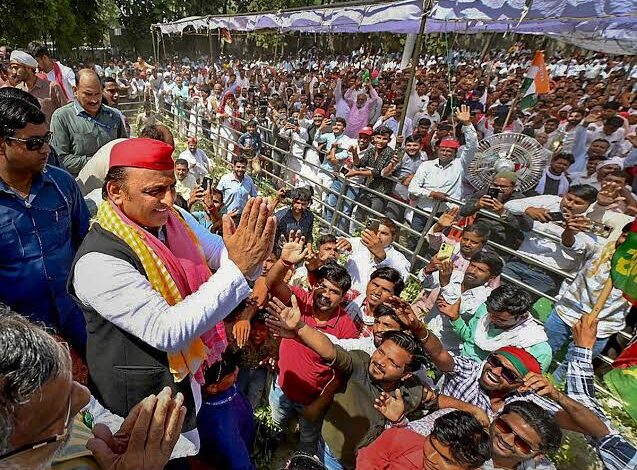
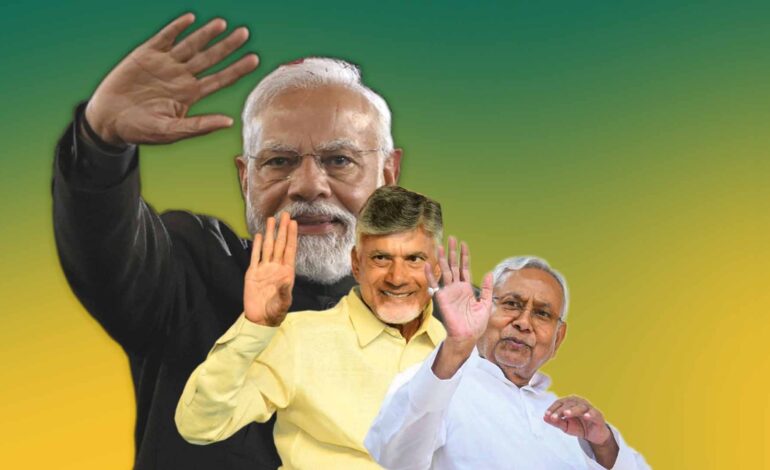
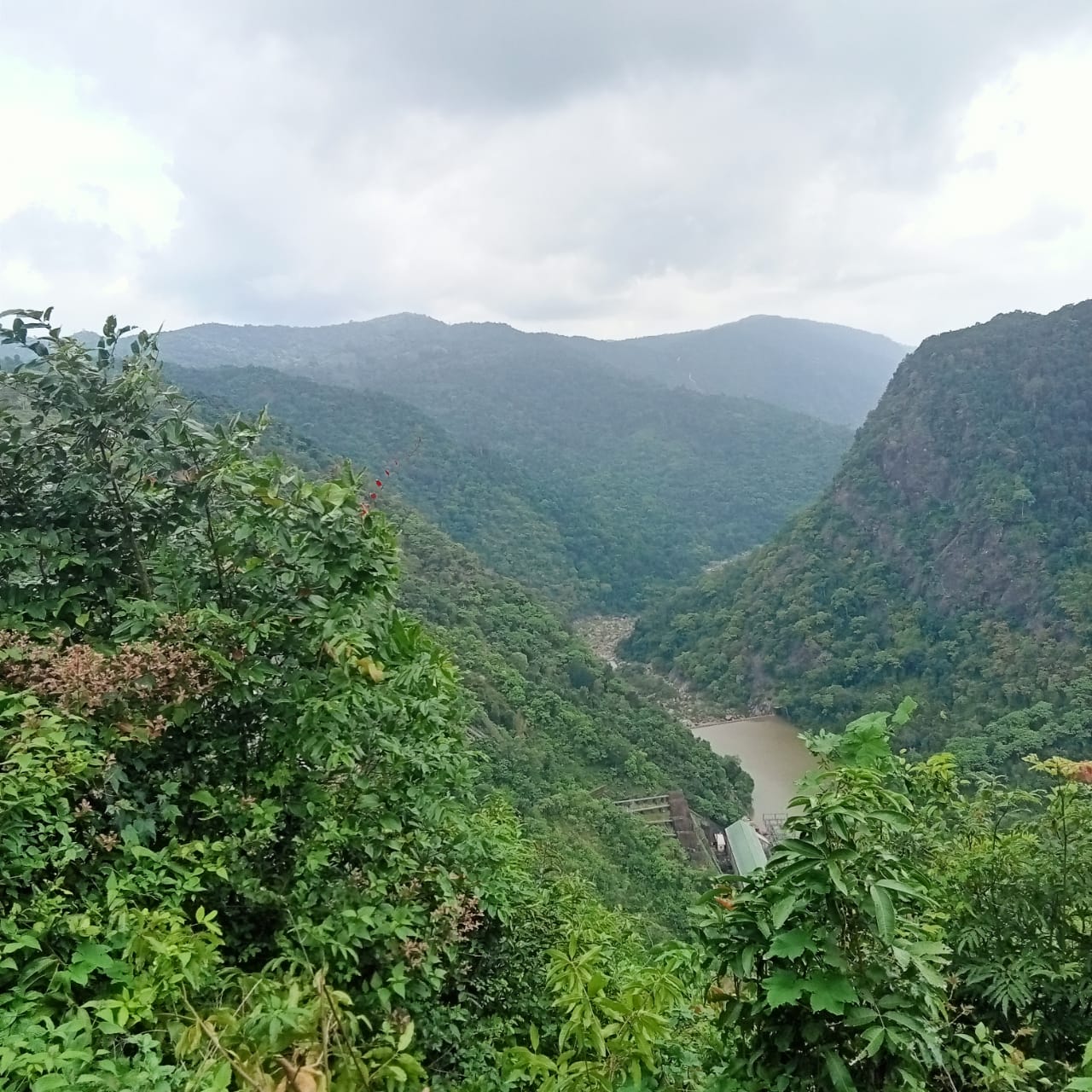
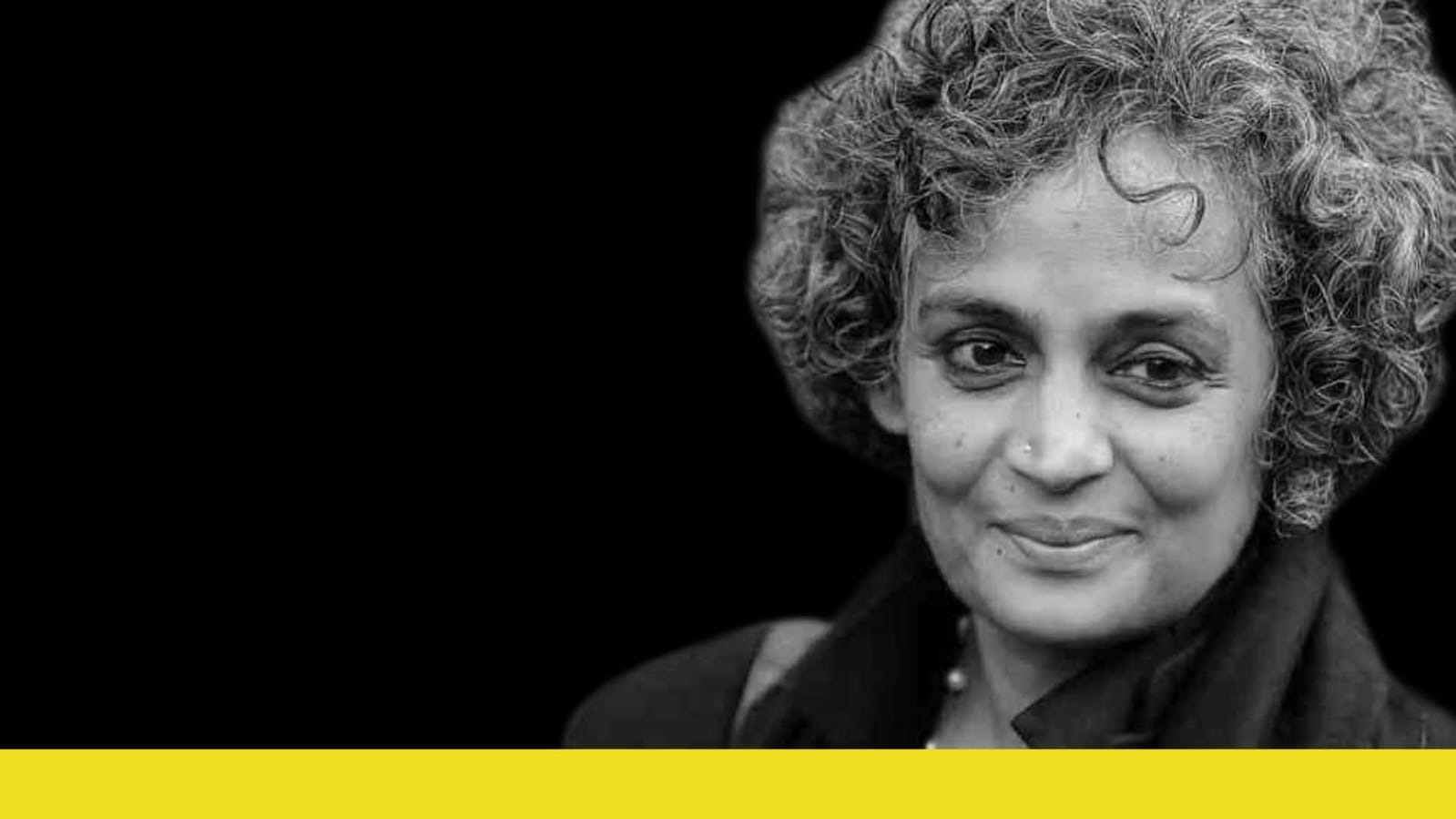
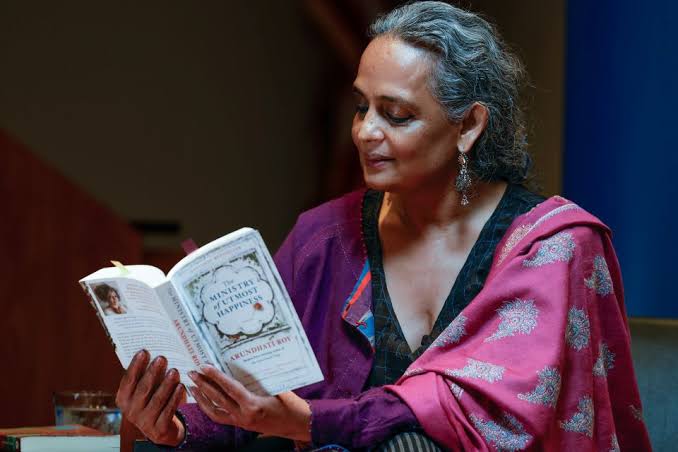
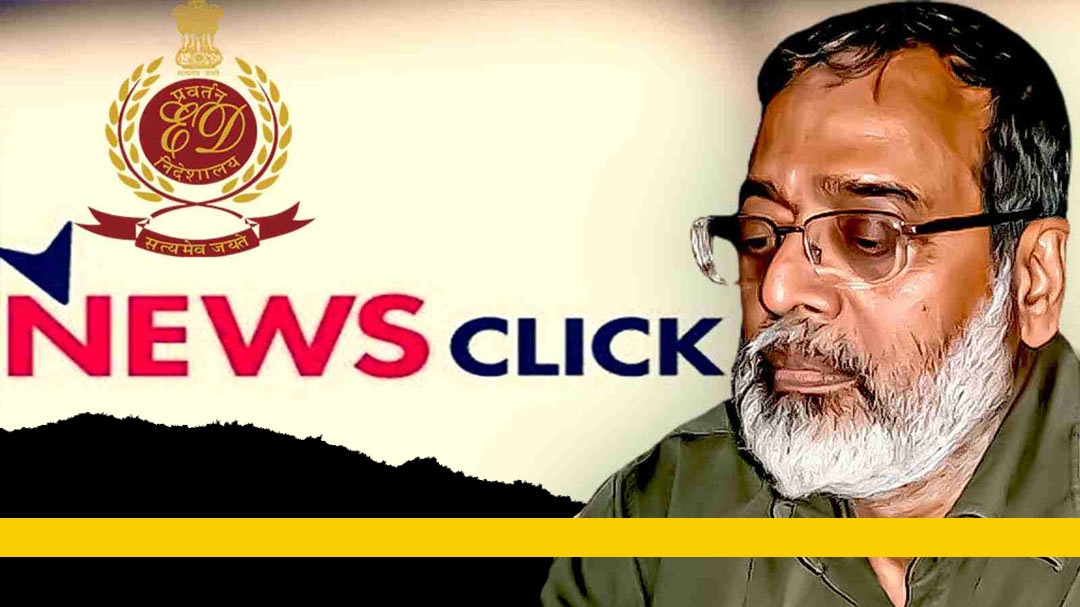


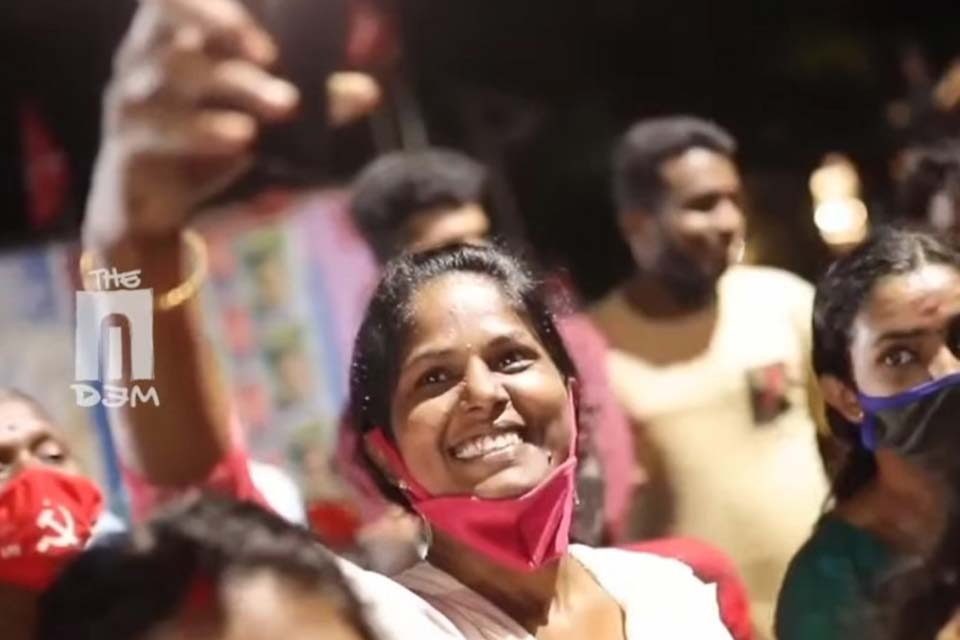

Brilliant writeup!
Brilliant.
Understanding the minds of the really marginalised and oppressed cannot be done with camera and recorder. Empathy is rare among observers, pollsters and reporters and they routinely get it wrong. Ravati Laul’s piece has the fragrance of empathy. And, therefore, the depth of understanding.
I have not read anyone decoding the UP pendulum swing more accurately than you have. For us in the south, UP has been a frustrating puzzle. But then distance clouds our understanding. But you had your ears to the ground, and your senses aware to the way the winds blew then, and now. My compliments, and keep writing on UP.
Brilliant & insightful article. A rare peak into the minds of people who really matter, right from the depths to where few journalists reach. The best article I’ve read on the way the people of UP voted & rescued us from the autocrat who was determined to consolidate his power for the third term. My pranams to Revati Laul for an extraordinary study.
Wow ! Wonderful Revati ! It was engrossing, sitting in Khurja (Bulandshahr) almost all through the seven phases of the election, the picture at this end was quiet & subdued, though it’s more or less an area that was confident of a BJP win (which they failed to read). Your Dad (my Boss) would’ve been proud to read this just as I am. Keep going !!